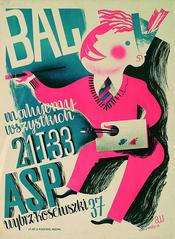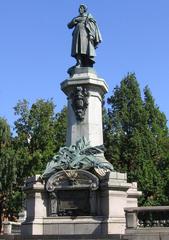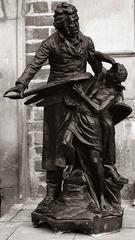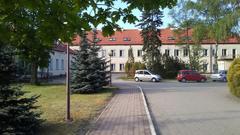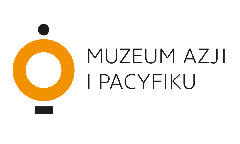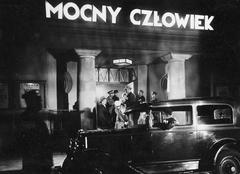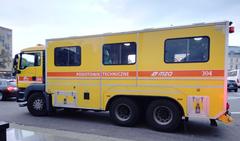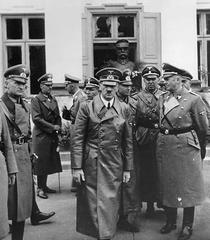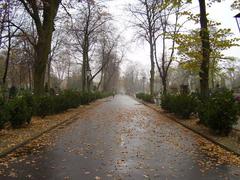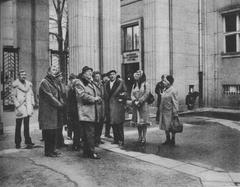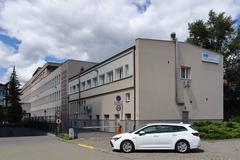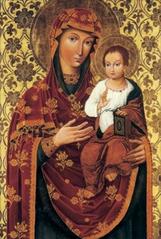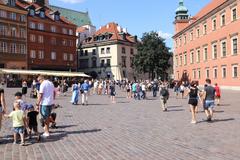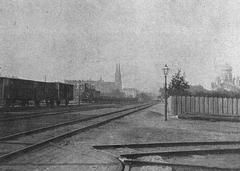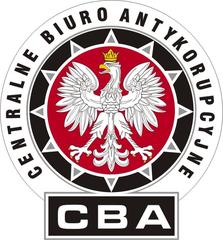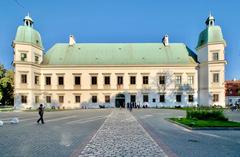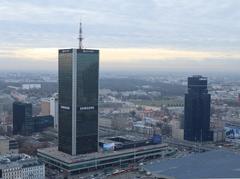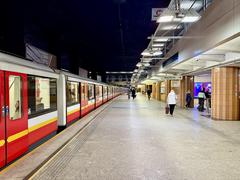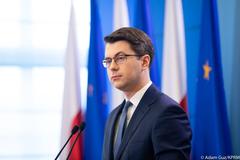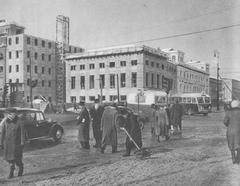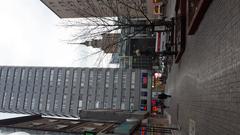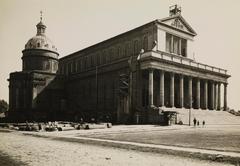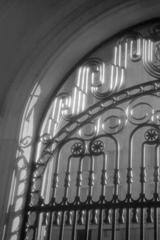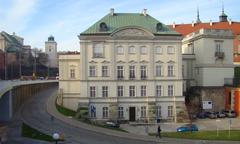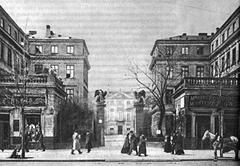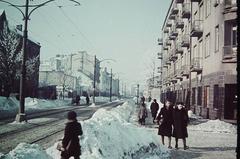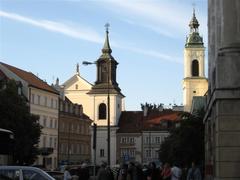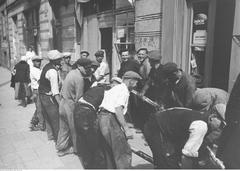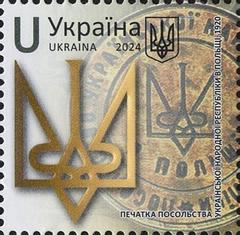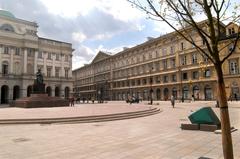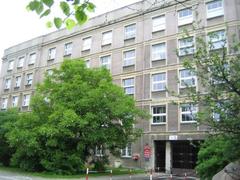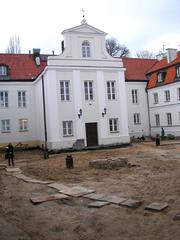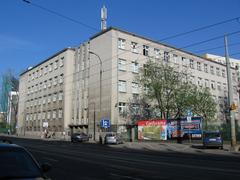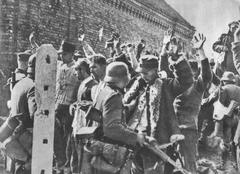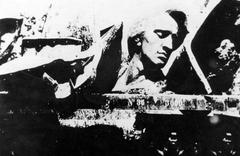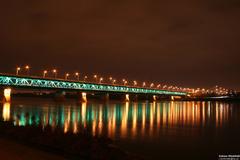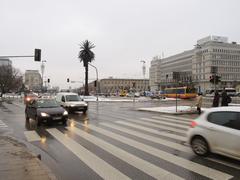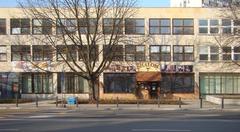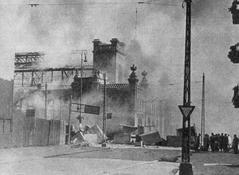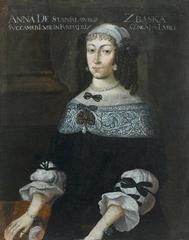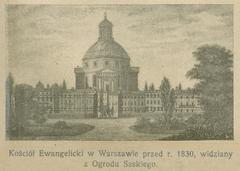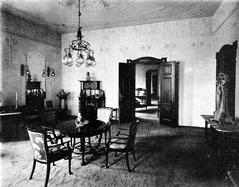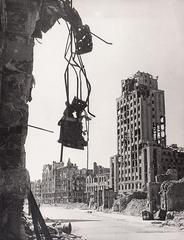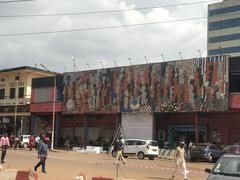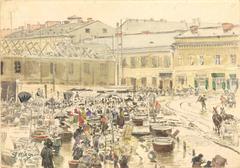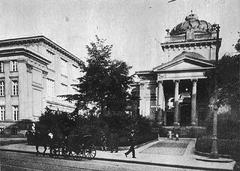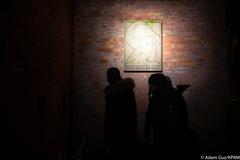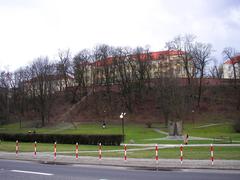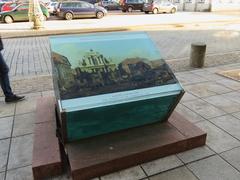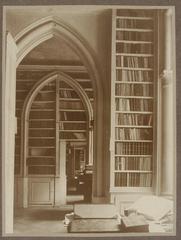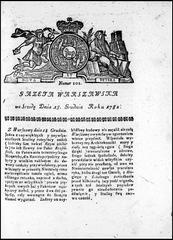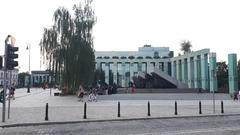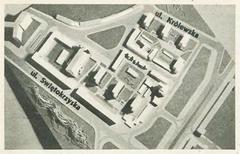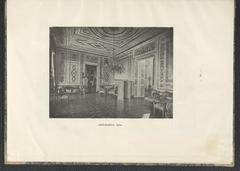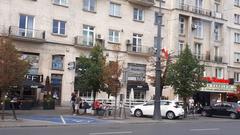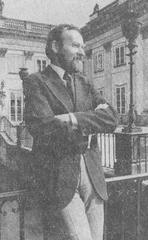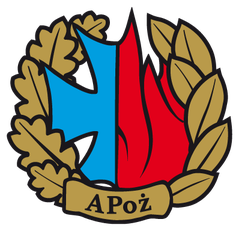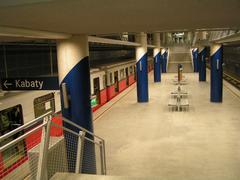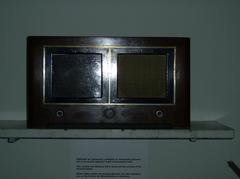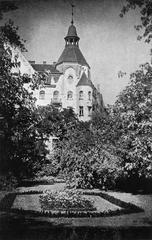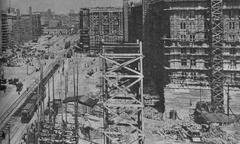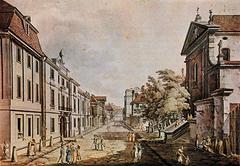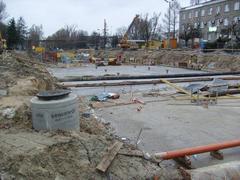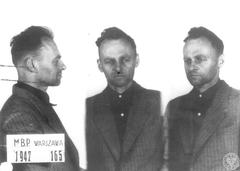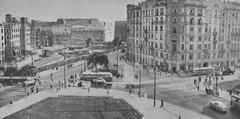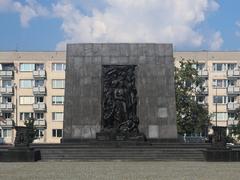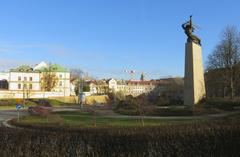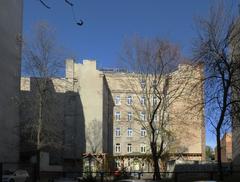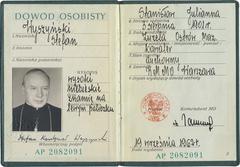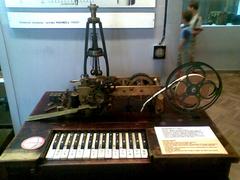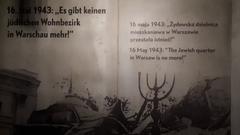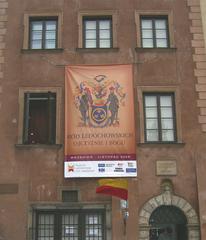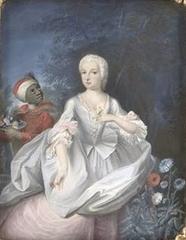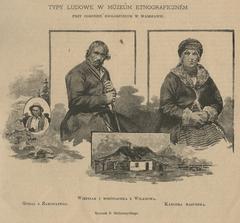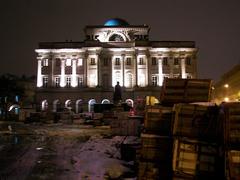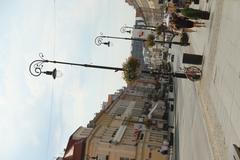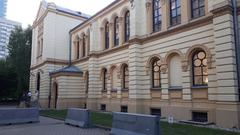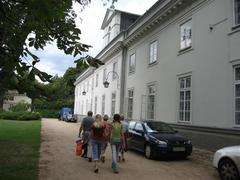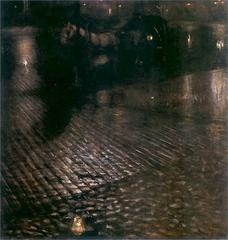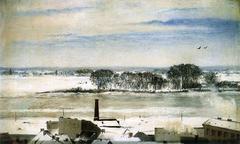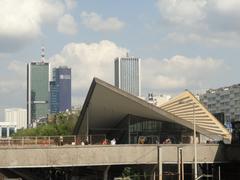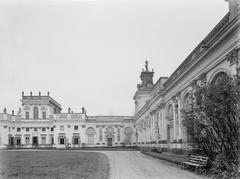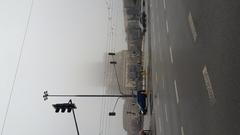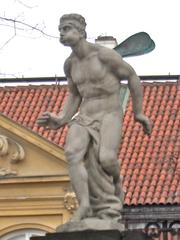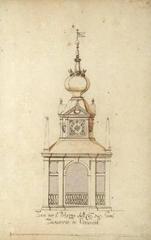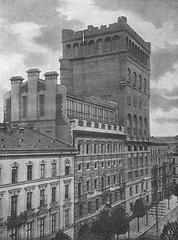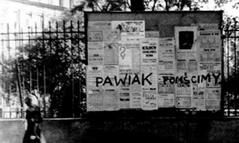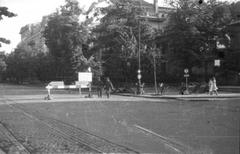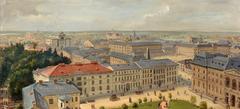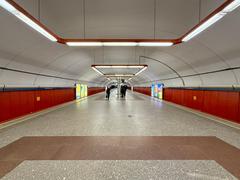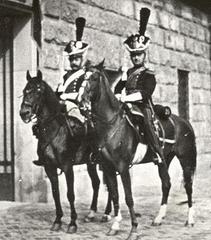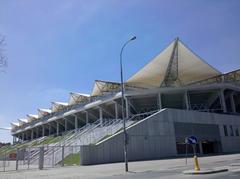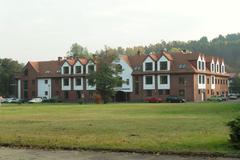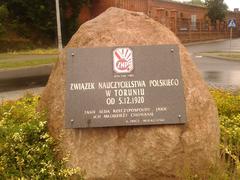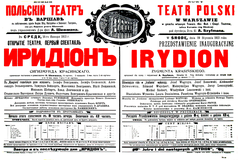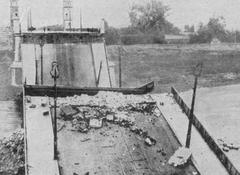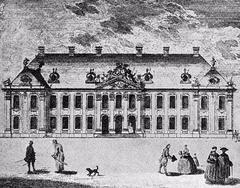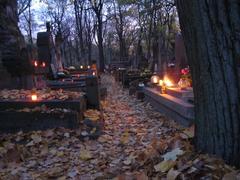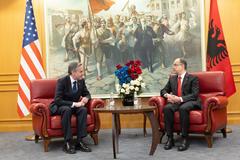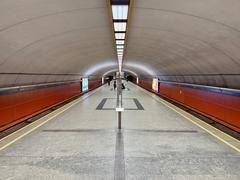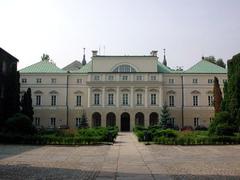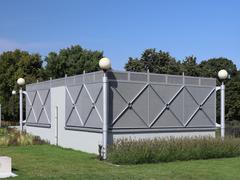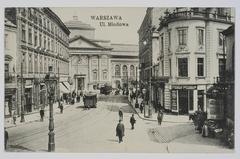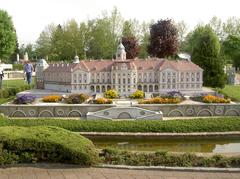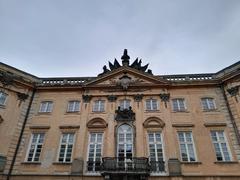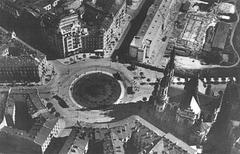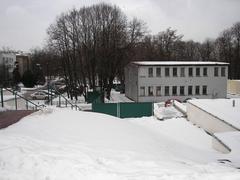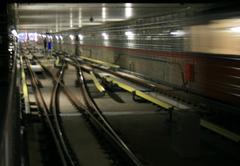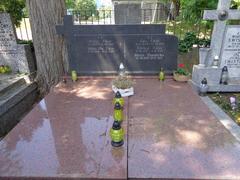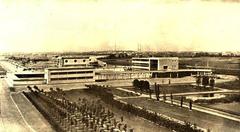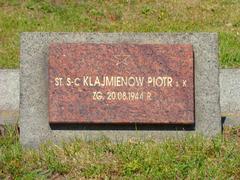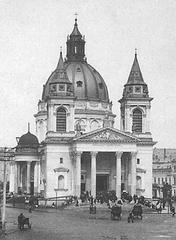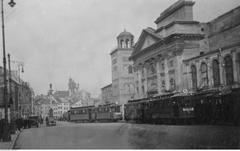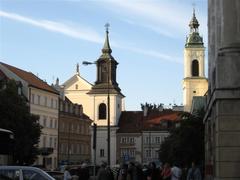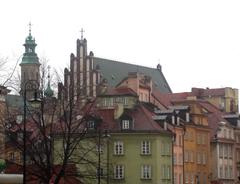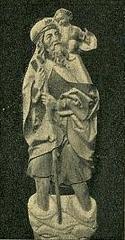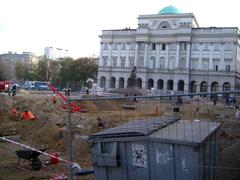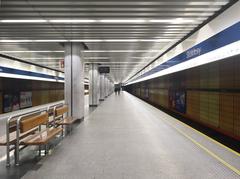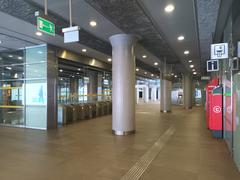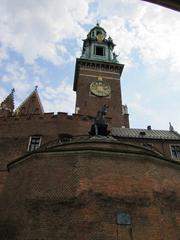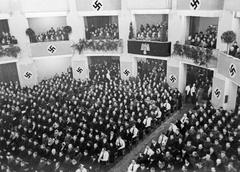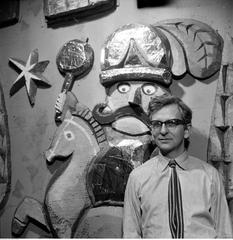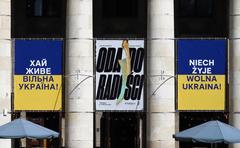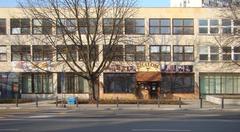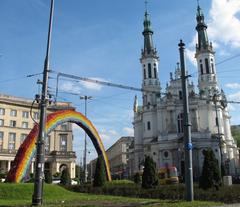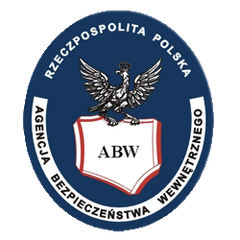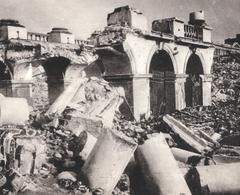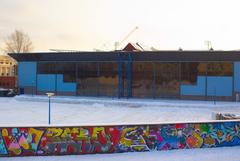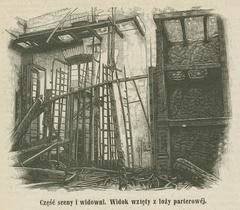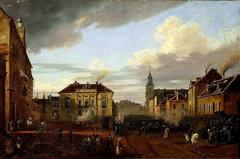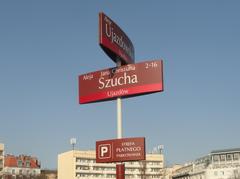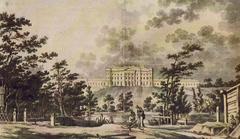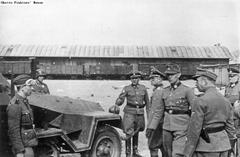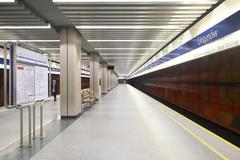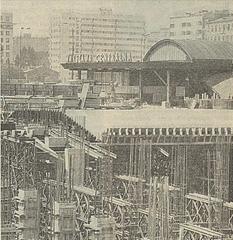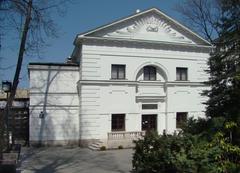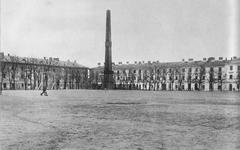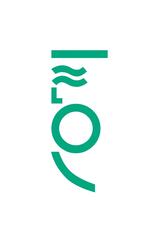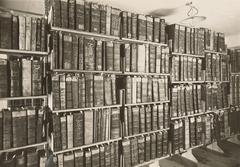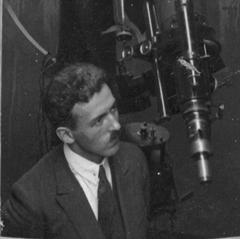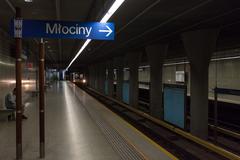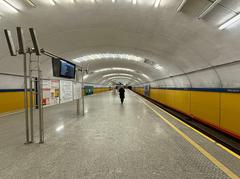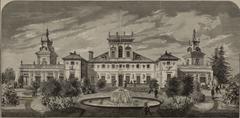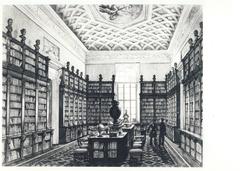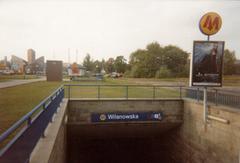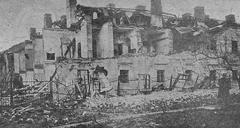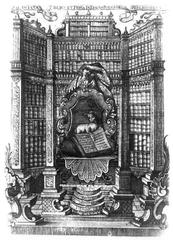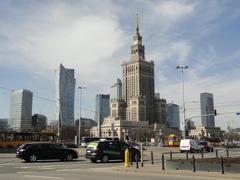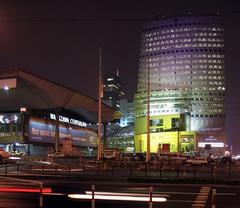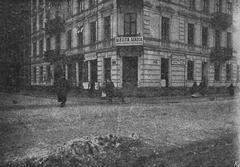
Goethe-Institut Warsaw: Comprehensive Visitor Guide
Date: 03/07/2025
Introduction
Nestled in the heart of Warsaw, the Goethe-Institut stands as a dynamic center of German-Polish cultural exchange. As part of a global network established in 1951 to promote German language and culture, the Warsaw branch plays a pivotal role in fostering dialogue, supporting language learning, and hosting diverse cultural events. This guide provides detailed, up-to-date information on visiting hours, ticketing, language programs, cultural offerings, accessibility, and nearby attractions, ensuring you can make the most of your visit. For the latest updates, always refer to the official Goethe-Institut Warsaw website and Warsaw City Events calendar.
Table of Contents
- Introduction
- History and Cultural Significance
- Location and Accessibility
- Visiting Hours and Admission
- Language Courses and Exams
- Library and Facilities
- Cultural Events and Community Engagement
- Practical Visitor Information and Tips
- Nearby Attractions
- Frequently Asked Questions (FAQ)
- References
History and Cultural Significance
Origins and Global Context
Founded in 1951, the Goethe-Institut was created to revitalize international cultural connections in the aftermath of World War II. Its mission is to promote the German language, facilitate cultural exchange, and share German society’s values (Goethe-Institut: History). Today, the network comprises 158 locations in 98 countries, adapting to a changing world (DW: Germany’s cultural institutions).
The Warsaw Branch
The Goethe-Institut Warsaw was established to strengthen German-Polish dialogue, especially vital after the fall of communism. As Germany’s flagship cultural center in Poland, it has been instrumental in supporting the democratic transition and European integration, offering language courses, cultural programs, and educational resources tailored to the local context (Goethe-Institut Warsaw).
Location and Accessibility
- Address: ul. Chmielna 13A, 00-021 Warsaw, Poland
- Transport: Centrally located, the institute is easily accessible by tram, bus, and metro. Main railway stations are a short tram or taxi ride away (The Thorough Tripper).
- Accessibility: Step-free entrances, elevators, and accessible restrooms ensure a welcoming environment for all. Contact staff in advance for specific needs.
Visiting Hours and Admission
- Reception: Monday to Friday, 9:00 AM – 6:00 PM
- Course Office: Monday–Wednesday, 9:00 AM – 6:00 PM; Thursday, 9:00 AM – 5:00 PM; Friday, 9:00 AM – 4:00 PM
- Library: Monday to Friday, 10:00 AM – 7:00 PM; Saturday, 10:00 AM – 2:00 PM
Admission to the building, library, and most cultural events is free. Some special exhibitions, concerts, or workshops may require advance registration or a nominal ticket fee (Goethe-Institut Warsaw Visiting Hours).
Language Courses and Exams
The Goethe-Institut Warsaw offers a comprehensive range of German language courses for all proficiency levels (A1–C2), following the Common European Framework of Reference for Languages (Goethe-Institut Warsaw):
- Formats: Onsite, online, intensive, evening, and weekend options
- Special Programs: Business German, conversation classes, youth and children’s courses
- Placement: Placement tests ensure proper course placement
- Exams: Official German language exams (A1–C2) and exam preparation courses
- Registration: Online or onsite; early booking is recommended. Payment by bank transfer; invoices provided for individuals or companies (Goethe-Institut Warsaw).
- Scholarships: Regular scholarship competitions for students to study in Germany or participate in cultural exchanges
Library and Facilities
- Resources: Over 800,000 analogue and digital media, including books, magazines, films, and audio materials focused on German culture
- Digital Library: Remote borrowing (Onleihe) of e-books and audiobooks
- Spaces: Quiet study areas, group workspaces, and comfortable lounges
- Support: Staff assistance in German, Polish, and English
- Events: Literary readings, book clubs, and cultural information sessions
- Amenities: Free Wi-Fi throughout; vending machines and lounge spaces available, with temporary catering during major events
Cultural Events and Community Engagement
The Goethe-Institut Warsaw features a dynamic program of:
- Art Exhibitions: Contemporary and historical works by German and Polish artists
- Film Screenings: German and European cinema, often accompanied by discussions or Q&A sessions
- Literary Events: Readings, author talks, and book launches
- Theatre and Performance: Avant-garde and collaborative productions
- Workshops and Debates: Topics include digital storytelling, climate action, migration, and more
- Collaborations: Partnerships with institutes like the Polish Institute Berlin and European Film Academy
- Community: “Deutsch für dich” online platform for free exercises and learner networking
Most events are free or low-cost; some require advance registration (Goethe-Institut Warsaw: Events).
Practical Visitor Information and Tips
- Advance Registration: Highly recommended for courses, exams, and popular events
- Identification: Bring valid ID for registration and exams
- Materials: Check the website for downloadable PDFs and required course materials (Goethe-Institut Warsaw)
- Transport: Use Warsaw’s tram, bus, or metro networks; ticket machines are widely available
- Safety: Warsaw is generally safe, but remain vigilant in crowded areas (The Thorough Tripper)
- Languages: Basic Polish or German is helpful, but English is widely spoken
- Contact: +48 22 505 90 00 (Reception), +48 22 505 90 42 (Course Office), [email protected]
Nearby Attractions
Combine your visit with these nearby Warsaw highlights:
- Royal Castle: Iconic symbol of Polish heritage
- POLIN Museum of the History of Polish Jews: Award-winning historical museum
- Warsaw Old Town: UNESCO World Heritage site with vibrant architecture
- Chopin Museum: Celebrating the world-famous composer
- Łazienki Park: Expansive park with palaces and gardens
Each is easily accessible via public transport from the Goethe-Institut, making cultural exploration convenient and rewarding.
Frequently Asked Questions (FAQ)
Q: What are the Goethe-Institut Warsaw’s opening hours?
A: Reception and public areas are open Monday to Friday, 9:00 AM – 6:00 PM, with library hours extending to 7:00 PM. Always check the website for event-specific times.
Q: Do I need tickets for events?
A: Most events are free or require a nominal fee. High-demand programs may require advance booking.
Q: Are the facilities accessible for people with disabilities?
A: Yes, the institute is fully accessible. Contact staff for specific accommodations.
Q: How can I register for language courses and exams?
A: Registration is possible online or onsite. Early booking and payment are recommended for course confirmation.
Q: Are guided tours available?
A: Guided tours are not regularly available, but may be arranged for groups or during special events.
Q: What languages do staff speak?
A: German, Polish, and English.
Q: Is there a café onsite?
A: No full café, but vending machines and lounge areas are available. Numerous cafés and restaurants are nearby.
Conclusion
The Goethe-Institut Warsaw is a vibrant hub for language learning, intercultural exchange, and cultural engagement in the heart of the city. Its comprehensive programs, welcoming facilities, central location, and commitment to accessibility make it a must-visit for locals and tourists alike. Enrich your Warsaw experience by exploring the institute’s offerings and the city’s surrounding cultural treasures.
For the most current information, visit the official Goethe-Institut Warsaw website and consider downloading the Audiala app for event updates and language learning resources.
References
- Goethe-Institut: History
- DW: Germany’s cultural institutions
- Goethe-Institut Warsaw
- Goethe-Institut Annual Report 2023/24
- Palms-Web: Goethe-Institut Exchange
- Goethe-Institut Warsaw (English)
- The Thorough Tripper: Visiting Warsaw
- Warsaw City Events Calendar

